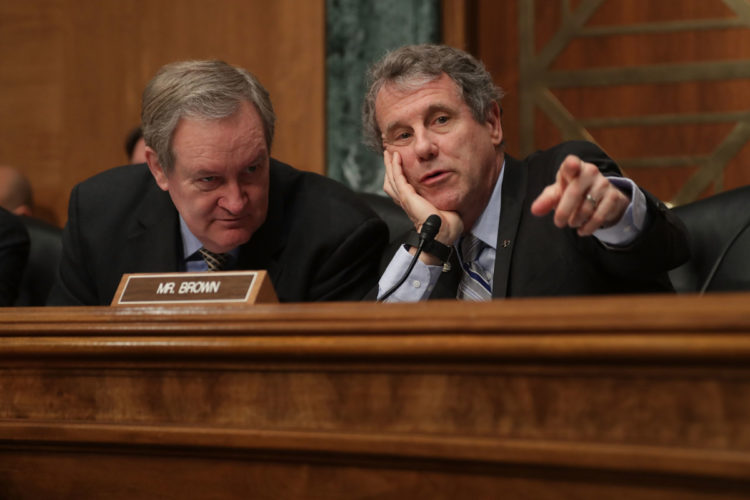Congress is poised to pass bipartisan legislation that would change the 2010 Dodd-Frank Act.
But the measure won’t overhaul the Consumer Financial Protection Bureau, which Dodd-Frank created and congressional Republicans have long railed against. And it won’t alter banking regulations, nor will it tweak capital requirements.
The narrowly written bill — the first Dodd-Frank change the 115th Congress has considered on a bipartisan, bicameral basis — would instead make a technical fix to the law.
The legislation would allow the incumbent insurance industry expert on the Financial Stability Oversight Council to remain a member of that regulatory body for as many as 18 months after the expiration of the term if a successor hasn’t yet been appointed. Under current law, the insurance expert’s six-year term can’t be extended in the absence of confirmation of a replacement.
Bipartisan praise for the legislation has been easy to come by in recent months. At last week’s Senate Banking Committee markup of the Senate’s version of the bill — S. 1463 — ranking member Sen. Sherrod Brown (D-Ohio) said the measure is a “good example” of how bipartisan cooperation on financial regulation can be achieved in the future.
“We know from the history in this institution — whether it’s Medicare, whether it’s the Wagner Act many decades ago — that Congress always comes back to years later and makes minor fixes,” Brown said on Sept. 7. “That’s what we’re doing here.”
The House passed its version of the legislation — H.R. 3110 — in a near unanimous vote of 407-1 two days earlier. The Senate’s Banking panel unanimously advanced its measure by voice vote at the Sept. 7 markup.
A Senate GOP aide said the chamber is expected to take up the House-passed version before October.
When asked if the Senate will take up the legislation before the end of this month, David Popp, a spokesman for Senate Majority Leader Mitch McConnell (R-Ky.), said he didn’t have “any guidance or announcements.”
The bipartisan, bicameral issue comes at a time when bigger changes to Dodd-Frank remain in a holding pattern because of major differences between how each chamber wants to overhaul the law. The House in June passed the Financial CHOICE Act, a comprehensive measure sponsored by Financial Services Committee Chairman Jeb Hensarling (R-Texas) that aims to repeal and replace several elements of Dodd-Frank.
The Senate Banking Committee, however, has been moving at a more leisurely pace as it considers possible broader changes to Dodd-Frank. Chairman Mike Crapo has held a series of hearings on “economic growth” that he’s framed as a way to work on a bipartisan basis to change Dodd-Frank. The Idaho Republican’s spokeswoman, Amanda Critchfield, said Monday that further hearings on the initiative aren’t scheduled, but “discussions are ongoing.”
The technical nature of the FSOC legislation makes it “the lowest of low-hanging fruit,” said Jason Rosenstock, a partner at the advising firm Thorn Run Partners. The main issue in determining how bipartisan changes to Dodd-Frank could move forward is whether Democrats and Republicans “trust each other enough to have an honest debate without pulling in what’s perceived as extraneous issues,” Rosenstock said in a Monday interview.
In the case of the insurance expert legislation, both parties have an incentive to see the technical fix, so partisan debates about Dodd-Frank’s effectiveness or necessity haven’t become part of the calculus.
Brandon Barford, a former Banking Committee GOP staffer who now works as a partner for the Washington-based firm Beacon Policy Advisors LLC, said in a Monday interview that the move is politically important because lawmakers on both sides of the aisle want to see the insurance expert’s voice remain on FSOC. The fix is advantageous to Republicans because it ensures industry representation on the council, and it helps Democrats ensure the council’s functions aren’t hamstrung, Barford said.
But there’s not “a whole lot of room, particularly in the Senate, for bipartisan changes that are based on policy,” he added. “It’s a massive collective action problem.”

